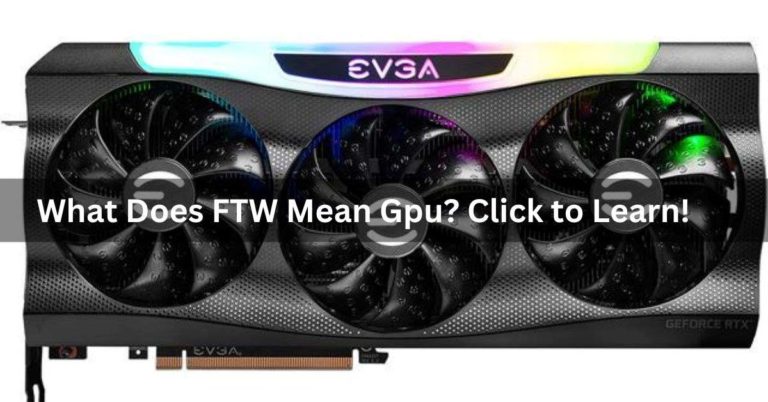Do Gpu brands matter? The Ultimate Guide 2024!
In the world of gaming and graphics, the debate over GPU brands has been an ongoing topic of discussion. Many professionals alike wonder if the brand of the GPU (Graphics Processing Unit) truly matters when it comes to performance and user experience.
Yes, GPU brands do matter. Different GPU manufacturers, such as NVIDIA and AMD, produce graphics cards with varying performance, features, and driver support. The choice of brand can significantly impact gaming, content creation, and other GPU-intensive tasks.
This article delves into the world of GPUs, exploring the significance of GPU brands, the factors that influence GPU performance, and the influence of brand-specific features.
What Does a Graphics Card Do?
A graphics card, or GPU (Graphics Processing Unit), is responsible for rendering images and videos on a computer’s display.
It processes complex mathematical calculations to create and display visual content, making it essential for gaming, video playback, and graphical tasks.
Also read: Do GPU fans always spin? – Causes And Fixed – 2023
Why Does Graphics Card Brand Matter?
The brand of a GPU (Graphics Processing Unit) can matter for several reasons, and it plays a significant role in the performance and overall user experience of a computer, especially for tasks that require intensive graphical processing, such as gaming, 3D rendering, and machine learning.

Here are some reasons why the GPU brand matters:
1. Performance:
Different GPU brands offer a range of performance levels. Some brands may invest more in research and development, resulting in faster and more efficient GPUs.
Performance is crucial, especially for gamers and professionals who rely on GPUs for their work.
Also read: What Does FTW Mean Gpu? Click to Learn!
2. Driver Support:
The brand of GPU you choose often determines the quality and frequency of driver updates.
Well-established brands typically provide more consistent and reliable driver support, which can lead to better compatibility and performance with the latest games and applications.
3. Software Ecosystem:
GPU brands often have their own software ecosystems, including control panels and utilities that can enhance the user experience.
These tools can help users fine-tune their GPU settings, optimize performance, and even stream gameplay.
Also read: Can I Use 6+2 Pin For 8 Pin Gpu? Check Compatibility!
4. Reliability:
Established GPU brands have a reputation for reliability and quality. This can be particularly important for professionals and businesses that require 24/7 stability and minimal downtime.
5. Warranty and Customer Support:
Some GPU brands offer better warranty coverage and customer support services. This can be crucial if you encounter any issues with your GPU and need assistance or a replacement.
Also read: Is 100% GPU Usage Bad? Complete guide!
6. Brand-Specific Features:
Different GPU brands may introduce unique features or technologies to their GPUs.
For example, NVIDIA’s RTX series includes ray tracing capabilities, while AMD’s Radeon GPUs may emphasize features like FreeSync for smoother gaming experiences.
Your choice of brand may depend on which of these features aligns with your specific needs.
7. Ecosystem Compatibility:
If you’re building a system or upgrading an existing one, the brand of your GPU may need to align with other components, such as your motherboard.
Some GPUs are more compatible with specific hardware or technologies, like NVIDIA GPUs with G-Sync monitors.
8. Price and Availability:
GPU prices and availability can vary significantly between brands. In times of high demand or product shortages, one brand may be more accessible or affordable than another.
9. Community and brand loyalty:
Some users have brand loyalty or preferences based on their past experiences. They may feel more comfortable with a particular brand due to familiarity or a positive track record.
Also read: What is a reference gpu? A Comprehensive Guide!
Factors That Influence GPU Performance:
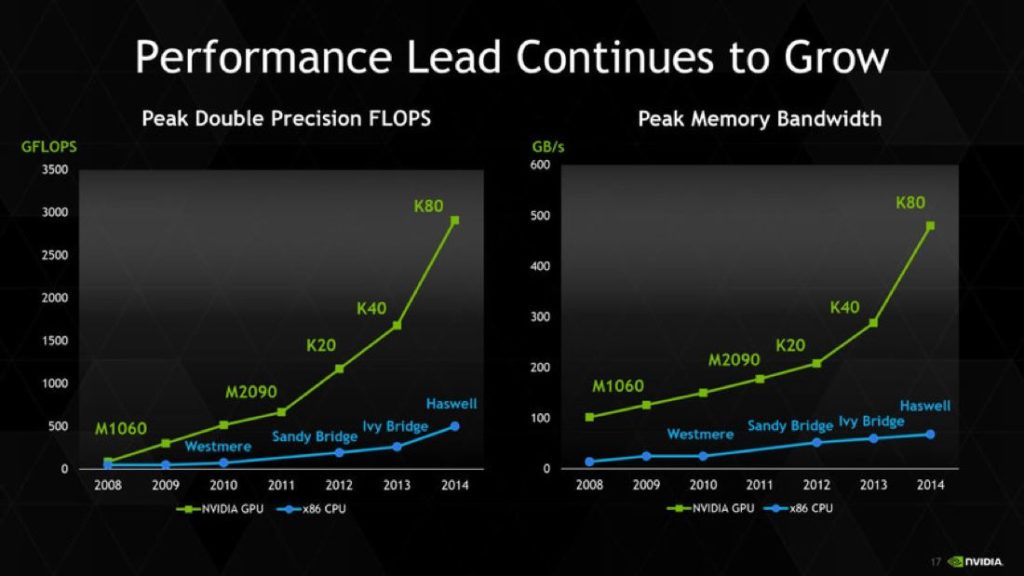
The performance of a GPU is influenced by various factors, including:
1. Processing Power:
Processing power is one of the fundamental aspects that determine the speed and efficiency of a GPU. It dictates how quickly the GPU can perform complex calculations and render images.
2. Graphics Quality:
The quality of graphics produced by a GPU is essential, especially for gamers and content creators. High-end GPUs are equipped to deliver stunning graphics with realistic details.
3. Driver Support:
Drivers are software components that facilitate communication between the GPU and the operating system. Robust driver support ensures smooth performance and compatibility.
Also read: Is 80 Degrees Celsius Hot For A GPU? Learn About GPUs!
How Do You Choose the Right Graphics Card Brand For Your Needs?
To pick the right graphics card brand, consider your budget, desired performance, and specific needs. Research customer reviews, compare models, and look for good customer support and warranty options.
Also read: Is It Okay For My Gpu To Be At 100? – Check GPU Temperature
The Best Graphics Card Brands for AMD and Nvidia GPUs?
For AMD GPUs, reputable brands include Sapphire, ASUS, and MSI. For Nvidia GPUs, popular choices are ASUS, EVGA, and Gigabyte. The best brand often depends on specific models and customer preferences.
Also read: What Is The PS5 Gpu Equivalent? Learn Now!
Does it really matter what brand you get for a GPU?
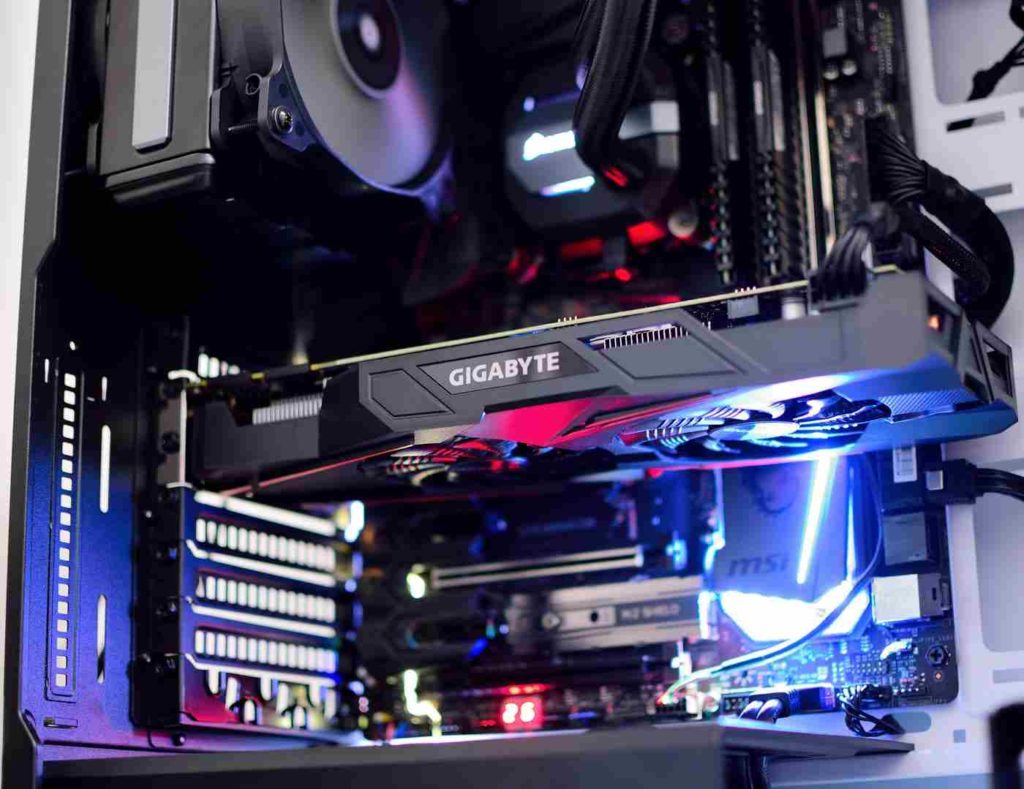
Yes, the GPU brand can matter because different brands may offer variations in cooling, warranty, and customer support. However, the specific GPU model often matters more for performance.
Also read: Do Both Monitors Need To Be Connected To The Gpu? Complete Guide!
Does it matter which graphics card manufacturer you choose?
Yes, the choice of graphics card manufacturer can matter. It affects factors like cooling solutions, warranties, and customer support.
However, the GPU model itself often plays a more significant role in determining performance.
Also read: What is a good gpu percentage? Complete Guide – 2023
Why Are There Different Manufacturers, Anyway?
Graphics card manufacturers exist because they customize graphics processing units (GPUs) created by companies like Nvidia and AMD.
They design unique cooling solutions, optimize performance, and provide customer support, offering consumers a range of options to suit their needs and preferences.
Also read: What Is Normal Gpu Usage While Gaming? Optimize Now!
What’s the Difference Between Manufacturers’ Cards?
Manufacturers’ graphics cards often differ in several ways. These distinctions include the design of the cooling system, factory overclocking, build quality, and aesthetics.
Some brands offer unique features, like enhanced RGB lighting or specific software packages. Moreover, customer service and warranty support can vary between manufacturers.
It’s essential to consider these differences when selecting a graphics card, as they can impact factors like performance, longevity, and the overall user experience.
Which changes really matter?
The changes that typically matter when choosing a graphics card are performance improvements, cooling solutions, warranty and support, and any unique features or software bundled with the card.
The Real Difference: Price, Trust, and Warranty?
The primary distinctions when choosing a graphics card often come down to price, brand reputation (trust), and the warranty offered.
Balancing these factors is crucial, as they can greatly affect the overall value and reliability of the card.
Overclocking a card can help improve its usefulness?
Overclocking a graphics card can enhance its performance, but it comes with risks.
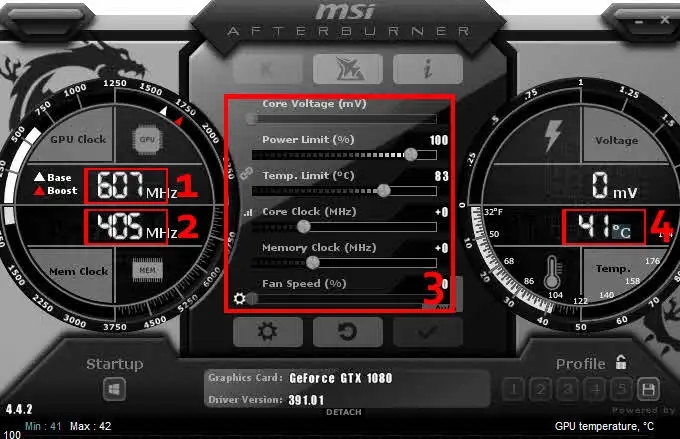
It can make the card more useful for demanding tasks like gaming and content creation, but it may also generate more heat and potentially reduce the card’s lifespan if not done carefully.
The Best Graphics Card Brands for AMD & Nvidia GPU:
For AMD and Nvidia GPUs, reputable graphics card brands include ASUS, MSI, Gigabyte, EVGA, and Sapphire. These brands are known for delivering high-quality performance, efficient cooling solutions, and reliable customer support.
Consider factors like warranty, reviews, and specific model features when choosing the best graphics card for your needs.
What’s The Difference Between Graphics Cards Brands?
The difference between graphics card brands lies in factors such as design, cooling solutions, warranty, customer support, and additional features.
Each brand may have unique technologies or software implementations, affecting performance and user experience. Researching reviews and considering specific needs can help determine the best choice.
Why Are There Different GPU Brands?
Different GPU brands exist due to the competitive nature of the graphics card market. Companies like NVIDIA and AMD design the GPUs, but they license other manufacturers (such as ASUS, MSI, Gigabyte, etc.) to produce and sell cards based on their designs.
This diversity offers consumers a range of options with varying designs, cooling solutions, and additional features, fostering competition and innovation in the industry.
Is a Graphic Card a Reliable Option?
Yes, a graphics card is a reliable option for enhancing a computer’s graphical performance. It is essential for tasks like gaming, video editing, and graphics-intensive applications.
Choosing a reputable brand, considering system compatibility, and meeting specific performance needs ensures a reliable and effective graphics card upgrade.
Also read: Which Way Do GPU Fans Blow? Complete Guide – 2024
Does graphics card brands matter?
Yes, graphics card brands matter to some extent. Different brands may offer variations in design, cooling solutions, customer support, and additional features.
While the GPU itself (NVIDIA or AMD) plays a significant role, choosing a reputable brand can influence factors like build quality, warranty, and overall user experience.
Also read: What Is GPU Hotspot? Detailed Guide!
Why are we using graphics card in computer?
Graphics cards are used in computers to handle graphical processing tasks, such as rendering images, videos, and 3D graphics. They offload these tasks from the central processor, enhancing overall system performance.
This is crucial for applications like gaming, video editing, design, and other graphics-intensive tasks, providing a smoother and more responsive user experience.
What exactly does a graphics card do?
A graphics card, or GPU (Graphics Processing Unit), is designed to handle graphics-related tasks in a computer. It processes and renders images, videos, and 3D graphics, converting data into signals that can be displayed on a monitor.
This offloads graphical processing from the CPU, enhancing performance for tasks like gaming, video editing, and other graphics-intensive applications.
What is the standard graphics card?
There isn’t a single “standard” graphics card as it depends on individual needs and use cases. However, some commonly recognized graphics cards for mainstream use include NVIDIA GeForce GTX/RTX series and AMD Radeon RX series.
These cards vary in performance and features, catering to different levels of gaming, content creation, and general computing requirements.
What graphics card is better?
Both NVIDIA and AMD offer competitive options. Popular choices include NVIDIA’s GeForce RTX series and AMD’s Radeon RX series. Check the latest reviews and benchmarks to find a card that suits your requirements for gaming, content creation, or other tasks within your budget.
What is the most reliable brand of graphics cards?
Graphics card brands are known for reliability. ASUS, MSI, EVGA, Gigabyte, and Sapphire are among the reputable brands for both NVIDIA and AMD GPUs.
However, individual models and series can vary, so it’s advisable to check recent reviews and user feedback for the specific graphics card you are interested in purchasing.
Can a laptop graphics card be Upgraded?
In many laptops, the graphics card is integrated into the motherboard and cannot be upgraded. However, some gaming laptops or high-end laptops come with discrete GPUs that are in the form of MXM (Mobile PCI Express Module) cards, which can be upgraded in certain cases.
Why do different companies make Geforce GTX?
Different companies, like ASUS, MSI, and EVGA, produce GeForce GTX graphics cards because NVIDIA, the creator of the GeForce GTX series, licenses its technology to third-party manufacturers.
This fosters competition, offering consumers various options with different cooling solutions, designs, and additional features while using the NVIDIA GPU architecture.
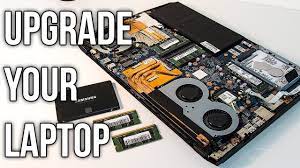
Frequently Asked Questions:
1. Does the GPU brand matter? What should I buy?
Yes, the GPU brand matters to some extent for factors like cooling, warranty, and support. However, the specific model and your budget are often more critical considerations when buying a graphics card.
2. Which brand of GPU is best?
The best GPU brand depends on your specific needs and budget. Brands like Nvidia and AMD have strong offerings, but the ideal choice often lies in the specific model and its performance.
3. Are all brands of GPU the same?
No, not all GPU brands are the same. Different brands offer variations in cooling, warranty, and support, and some may produce custom-designed models with unique features.
4. Does brand matter when buying a GPU?
Yes, the brand can matter when buying a GPU because it affects factors like cooling, warranty, and customer support. However, the specific model often matters more for performance.
5. Does GPU brand matter to you when buying if they’re doing the same thing or just price?
The GPU brand matters if it impacts factors like cooling, warranty, and customer support, or if a specific feature is desired. Otherwise, price and performance often play a more significant role.
6. Are some GPU brands better for gaming than others?
The choice of GPU brand for gaming depends on personal preferences and the specific games you play. Some brands focus on features like ray tracing, while others offer strong price-to-performance ratios.
7. Does gpu brand matterwhat should i Buy?
GPU brand matters for performance and reliability. Choose reputable brands like NVIDIA or AMD based on your budget and specific needs for gaming or professional tasks.
8. Does GPU brand matter if you’re liquid cooling?
Yes, GPU brand still matters when liquid cooling. Opt for a reputable brand like NVIDIA or AMD for performance and compatibility with liquid cooling solutions.
9. Are different brands of the ‘same’ graphics card better than other brands of that same graphics Card?
Performance differences among different brands of the same graphics card are usually minimal. Choose based on factors like cooling, warranty, and customer support for the best value.
10. Do brand names matter for the type of gpu you are buying?
Yes, brand names matter when buying a GPU. Reputable brands often provide better performance, reliability, and customer support. Consider factors like NVIDIA, AMD, or others based on your needs.
11. If you are going to custom water cool your gpu does the brand Matter?
Yes, GPU brand can still matter when custom water cooling. Choose a brand with good build quality, compatible water blocks, and reliable customer support for optimal results.
12. How does graphics card brand Matter?
The graphics card brand matters for factors like performance, cooling solutions, build quality, customer support, and warranty. Reputable brands often deliver better overall experiences and reliability.
13. What’s a good brand for a graphics card?
NVIDIA and AMD are reputable brands for graphics cards, offering high-performance options for gaming and professional use. Look for models like NVIDIA GeForce RTX or AMD Radeon RX series.
14. Does the brand of a graphics card make a difference even if the cards share the same chipset?
Yes, the brand of a graphics card can still make a difference even if they share the same chipset. Variations in cooling, build quality, and customer support can impact performance and user experience.
15. What is the essence of having dual graphics card from different brands installed on a computer?
Installing dual graphics cards from different brands can be challenging and often isn’t recommended. Compatibility issues may arise due to differing architectures and software optimizations. It’s generally advisable to use identical cards for optimal performance and stability.
16. How do I choose a graphic card?
When choosing a graphics card, consider your budget, intended usage (gaming, content creation, etc.), system compatibility, and performance needs. Research current models from reputable brands like NVIDIA or AMD for the best fit.
17. Is Galax a good brand to buy for a graphics card?
Galax is generally considered a decent brand for graphics cards. However, individual experiences may vary. Before purchasing, it’s advisable to check reviews for the specific model you’re interested in to ensure it meets your performance and reliability expectations.
18. What graphics card do you think has aged the best?
Determining the “best” aging graphics card depends on various factors, including intended use and performance expectations. Some cards known for long-term reliability and performance include NVIDIA’s GTX 1080 Ti and AMD’s RX 580.
19. Will graphics card prices vary on different brands or versions?
Yes, graphics card prices can vary significantly based on the brand, model, and version. Different brands may offer variations with custom cooling solutions, factory overclocking, or additional features, impacting the overall cost.
20. What’s so great about Nvidia’s graphics cards?
NVIDIA’s graphics cards are praised for their cutting-edge technology, high performance, and extensive driver support. Features like real-time ray tracing, DLSS (Deep Learning Super Sampling), and efficient power consumption contribute to their reputation for delivering top-tier gaming and professional graphics experiences.
21. Is an integrated graphics card good?
Integrated graphics cards are suitable for basic tasks like web browsing and office applications. However, for demanding tasks like gaming or graphic-intensive work, a dedicated graphics card is recommended.
22. Why do some computers have double graphics cards?
Computers may have dual graphics cards for improved performance, especially in gaming or graphic-intensive tasks. This setup, known as SLI (NVIDIA) or CrossFire (AMD), allows parallel processing, enhancing graphics rendering capabilities.
23. What are the differences between the different brands of GeForce graphics cards?
The main differences among GeForce graphics cards from various brands lie in factors like cooling solutions, factory overclocking, build quality, and customer support. Each brand may offer unique features and designs.
24. Does graphics card memory matter?
Yes, graphics card memory (VRAM) matters for performance, especially in tasks like gaming and graphic-intensive applications. Higher VRAM allows for better handling of larger textures and more demanding tasks, improving overall graphics performance.
25. What is better: Nvidia or AMD?
The choice between Nvidia and AMD depends on individual preferences, budget, and specific needs. Both companies offer competitive graphics cards. Nvidia is often preferred for high-end performance, while AMD provides good value for mid-range budgets.
FINAL WORDS:
Yes, GPU brands matter when choosing a graphics card. Factors such as performance, driver support, software ecosystem, reliability, warranty, brand-specific features, and compatibility with your hardware can all influence your gaming and computing experience. While the specific GPU model is crucial, the brand can impact important aspects of your GPU usage.






